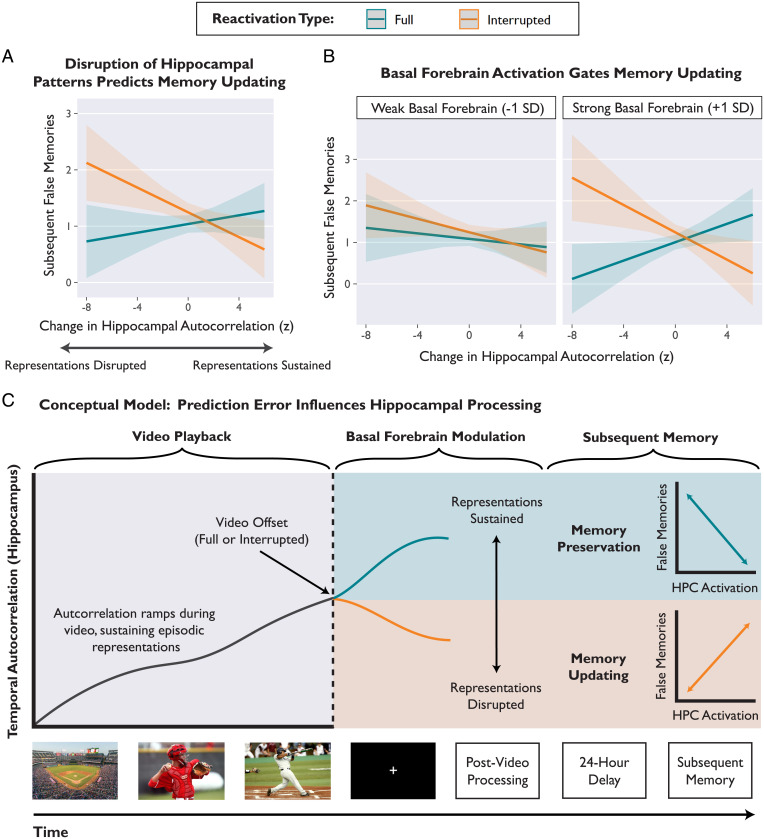Fig. 5.
Prediction errors elicited by Interrupted videos disrupted sustained hippocampal representations, and this disruption predicted memory updating. (A) Estimated values from a linear mixed-effects regression model predicting subsequent false memories from the interaction of reactivation type and change in autocorrelation. After Interrupted videos, decreases in autocorrelation were related to increased memory updating. (B) The effect of prediction error on hippocampal autocorrelation and subsequent memory depended on concurrent basal forebrain activation. Basal forebrain activation was binned (weak vs. strong) for visualization, but statistical models used a continuous variable. Shaded bands depict 95% CIs around the regression line. In A and B, model-predicted estimates are depicted instead of individual data points in order to show within-subject effects, while controlling for subject and stimulus variability. (C) Conceptual schematic depicting the effect of prediction error on hippocampal representations and subsequent memory. During a video, the hippocampus sustains episodic representations over time, consistent with generating ongoing predictions. After video offset, the hippocampus acts to preserve the memory (representations sustained, univariate activation predicts fewer false memories) or prepare for memory updating (representations disrupted, univariate activation predicts more false memories). The link between prediction error and memory outcomes depends on coactivation of the hippocampus and basal forebrain during the postvideo period.

